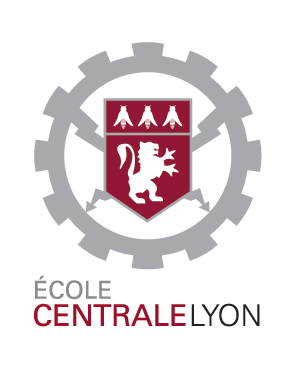CENTRALE LYON - PhD Electrical characterization of sliding interfaces operating under severe conditions
- On-site
- Ecully, Auvergne-Rhône-Alpes, France
- €29,000 - €29,000 per year
- LTDS - Laboratoire de Tribologie et Dynamique des Systèmes
Job description
Context and main objective
In our society, the fast-growing development of electric mobility and power sourcing poses new challenges for the improvement of energy efficiency. Among others, many efficiency and durability limitations in electric motors or generators (e.g. used in electric vehicles or wind turbines) are now attributed to tribological issues at sliding interfaces. At these contact points, friction forces (which result in energy losses) and wear (which leads to material losses and damage) are governed by the physical and chemical properties of the interfaces.
In order to monitor and counteract these limitations, this PhD project aims to develop and challenge a new methodology for the in-operando characterization of sliding interfaces subjected to both electrical and mechanical stresses (as in electric motors). This methodology will be applied to assess the efficiency of innovative lubrication methods based on MoS2 lubricants.
A project at the crossroads of scientific disciplines
This project lies at the crossroads of different scientific disciplines (tribology and electrical characterization), and bridges the gap between fundamental and applied research on interface physical-chemistry.
- Tribology is the scientific discipline that studies the phenomena of contact, friction, wear, and lubrication between surfaces. It plays a central role in the energetic efficiency and lifetime of many machines. Understanding and mastering the tribological phenomena of bearings or gears in electric motors is essential since their interfaces are subjected to harsh electrical and mechanical stresses. In practice, friction and wear are drastically reduced by the introduction of a lubricant (oil-based, for instance), and it is well-known that, under specific conditions, a tribofilm can grow spontaneously at the interface, involving chemical reactions promoted by mechanical stress.
- The electrical characterization of interfaces is a discipline found in various scientific fields: microelectronics, nanotechnologies, power systems (such as fuel cells and batteries), corrosion monitoring and tribology. In the latter field, however, only basic measurements are typically conducted, leaving the full potential of such characterizations largely underutilized: quasi-static current-voltage characteristics, impedance spectroscopy…
The present project will merge these two scientific disciplines, through the experimental coupling of tribological and electrical characterizations of interfaces. The electrical approach will be used to either characterize and stress the tribological interfaces.
In terms of lubrification, focus will be made on MoS2-based lubricants, either with solid lubricant films deposited by magnetron sputtering or with liquid lubricants containing chemical precursors able to generate MoS2 nano-sheets.
Description of the research activities
This PhD work will essentially rely on experimental tasks, even though the processing and interpretation of experimental data will be essential. Experiments will be performed on tribometers equipped with electrical measurements.
The PhD student will have in charge the experiments able to answer the following scientific questions:
- Electrical monitoring of a tribofilm: Are the electrical measures sensitive to the physical-chemistry of the tribofilm? Can they be used to monitor its nucleation and growth?
- Effect of electrical stressing: What is the effect of an electrical stress on lubrication? Are they any synergistic interactions between mechanical and electrical stresses?
- Effect of the environment: What is the effect of the environment (temperature, atmosphere) on the lubrication efficiency? To assess this topic, different tribometers (at room atmosphere, under controlled atmosphere and/or under-vacuum) will be used.
The PhD student will participate to the development of the experimental methodology, propose dedicated campaigns of experiments, prepare the samples, run the experiments, process the data and interpret the results in terms of physical-chemistry explanations.
The PhD student will have to collaborate with project partners, since similar experiments at lower scale will be performed at SIMaP lab (Grenoble, France).
Job requirements
Informations ________________________________________________
Laboratory: Laboratoire de Tribologie et Dynamique des Systèmes (LTDS - UMR 5513)
Type of working contract: Fixed term contract
Working contract duration: 3 years
Job starting date: 1st January 2025
Job status: PhD student
Gross annual salary: ≈ 40 000€/year
Required diploma: Master research (M2)
Required research experience: Master degree internship
Place of work: LTDS lab, Ecully (FRANCE)
Laboratory presentation
LTDS (https://ltds.ec-lyon.fr/)
The “Laboratoire de Tribologie et Dynamique des Systèmes” aims at providing an integrated response to complex fundamental and industrial problems in a high-level multidisciplinary scientific environment. Its research areas are: tribology and surface and interface sciences, dynamics of complex systems, materials science, life engineering, perception, manufacturing processes and civil engineering. It combines multidisciplinary research in solids mechanics, chemistry and materials physics. LTDS lab is associated to the “École Centrale de Lyon” (ECL), which is a graduate school of engineers (https://www.ec-lyon.fr/en).
or
All done!
Your application has been successfully submitted!
